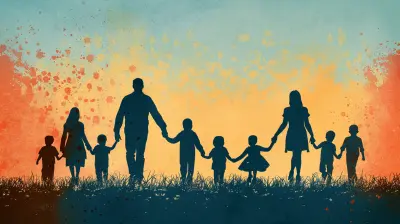How to Help Your Child Navigate Friendship Struggles
14 August 2025
Friendships are one of the biggest joys in childhood—but also one of the biggest challenges. No, really! From playground scuffles to middle school drama, kids go through a rollercoaster of emotions when it comes to their friends. And as a parent, it can be tough watching your child struggle with something as personal and sometimes painful as friendships.
So how do you help without taking over? How do you support them without stepping on their growing independence? Let’s talk about how you can help your child navigate friendship struggles—without making them feel like they’re under a microscope.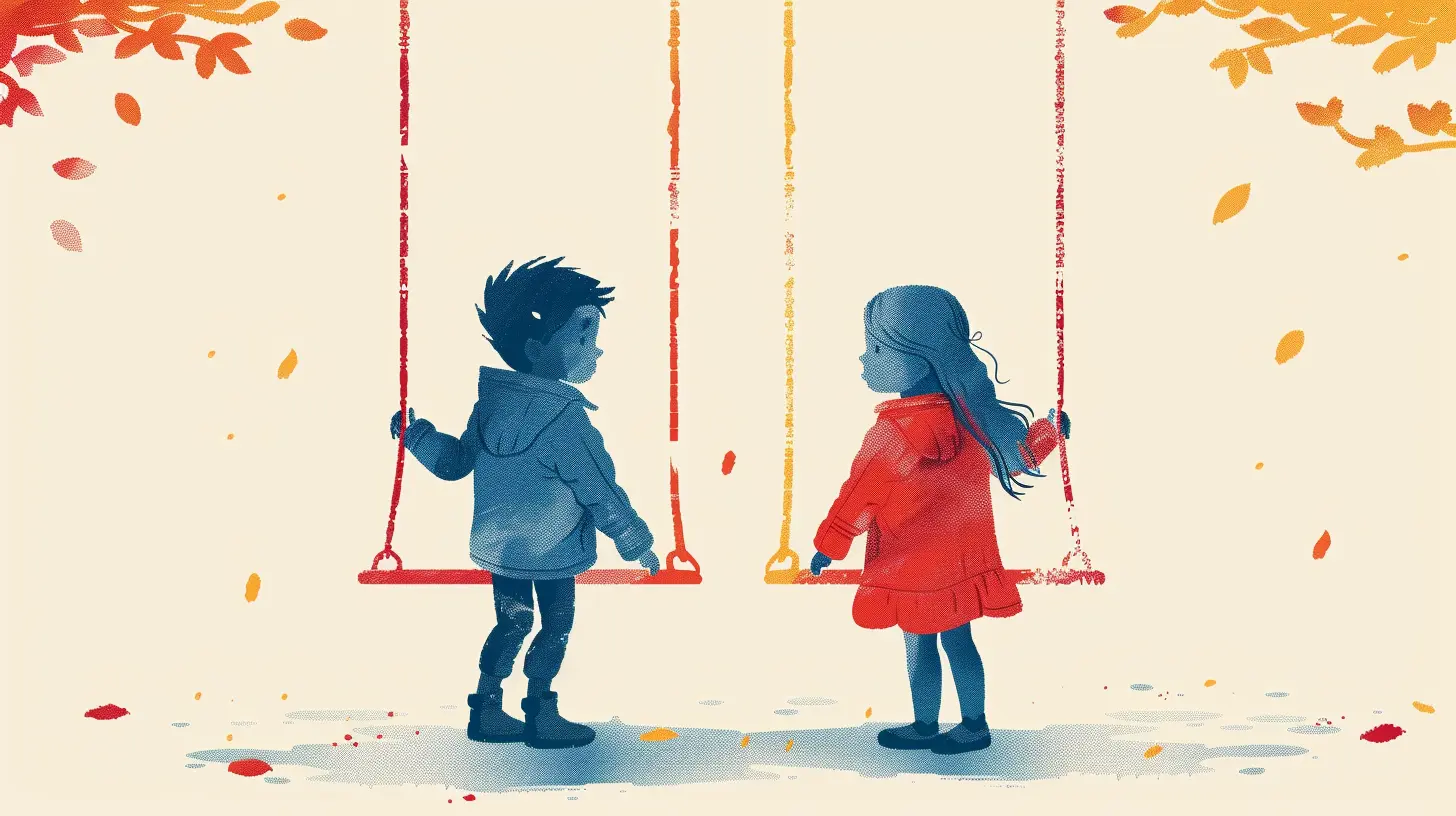
Why Friendships Matter So Much to Kids
Before we dive into the “how,” let's talk about the “why.” Why do friendships matter so much to kids?Think of friendships as your child’s training ground for lifelong social skills. Through friends, kids learn how to communicate, resolve conflicts, empathize, share, and assert themselves. These relationships help shape their sense of identity and self-worth.
So when a friendship breaks down or gets complicated (as they often do), it can shake your child’s confidence. And that’s where your role comes in—not to solve their problems, but to guide them through the storm.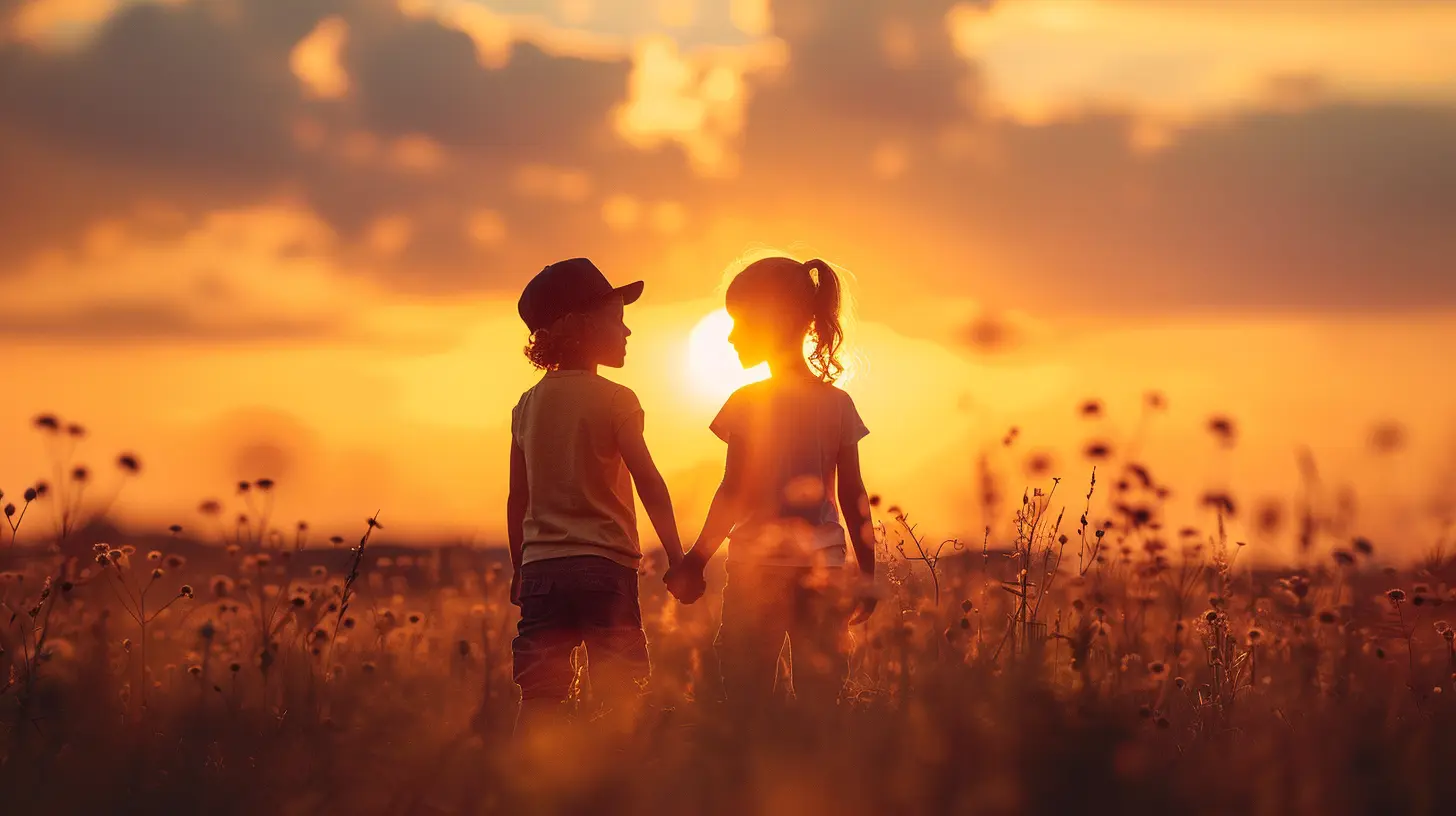
Spotting the Signs of a Struggling Friendship
Kids don’t always announce when something’s wrong. In fact, most won’t come right out and say, “Mom, I feel excluded at recess.” But they show it in other ways.Watch for these signs:
- Sudden mood swings after school
- Avoiding school or social situations
- Becoming more withdrawn or clingy
- Talking about “not having any friends”
- Complaining of stomachaches or headaches before social events
- Feeling extra sensitive or overly defensive
Sometimes, it’s subtle. Other times, it’s loud and clear. Either way, if your child seems off, it may be time to gently open up the conversation.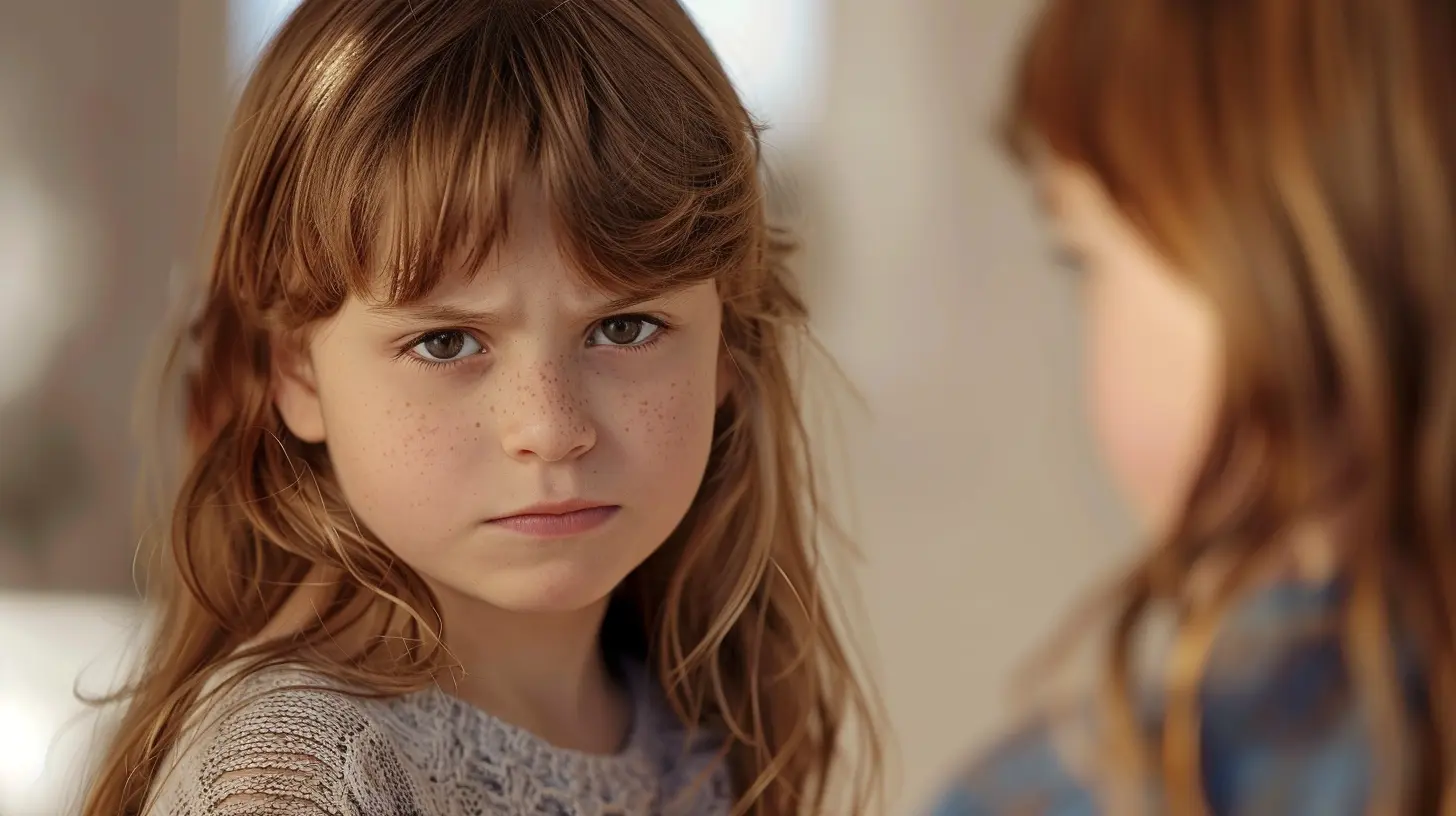
Start with Listening (Like, Really Listening)
Let’s be real—when your child tells you they're having friend trouble, your mom/dad instincts kick in big time.You want to fix it. Now.
But before you start brainstorming solutions or contacting teachers, just pause and listen. Like really listen. Sometimes the best first step is simply being a sounding board.
Try using open-ended questions like:
- “That sounds tough. What happened next?”
- “How did that make you feel?”
- “What do you think you want to do about it?”
Remember, your goal isn’t to interrogate—it’s to understand. When you listen without judgment, your child feels safe. And when they feel safe, they open up more.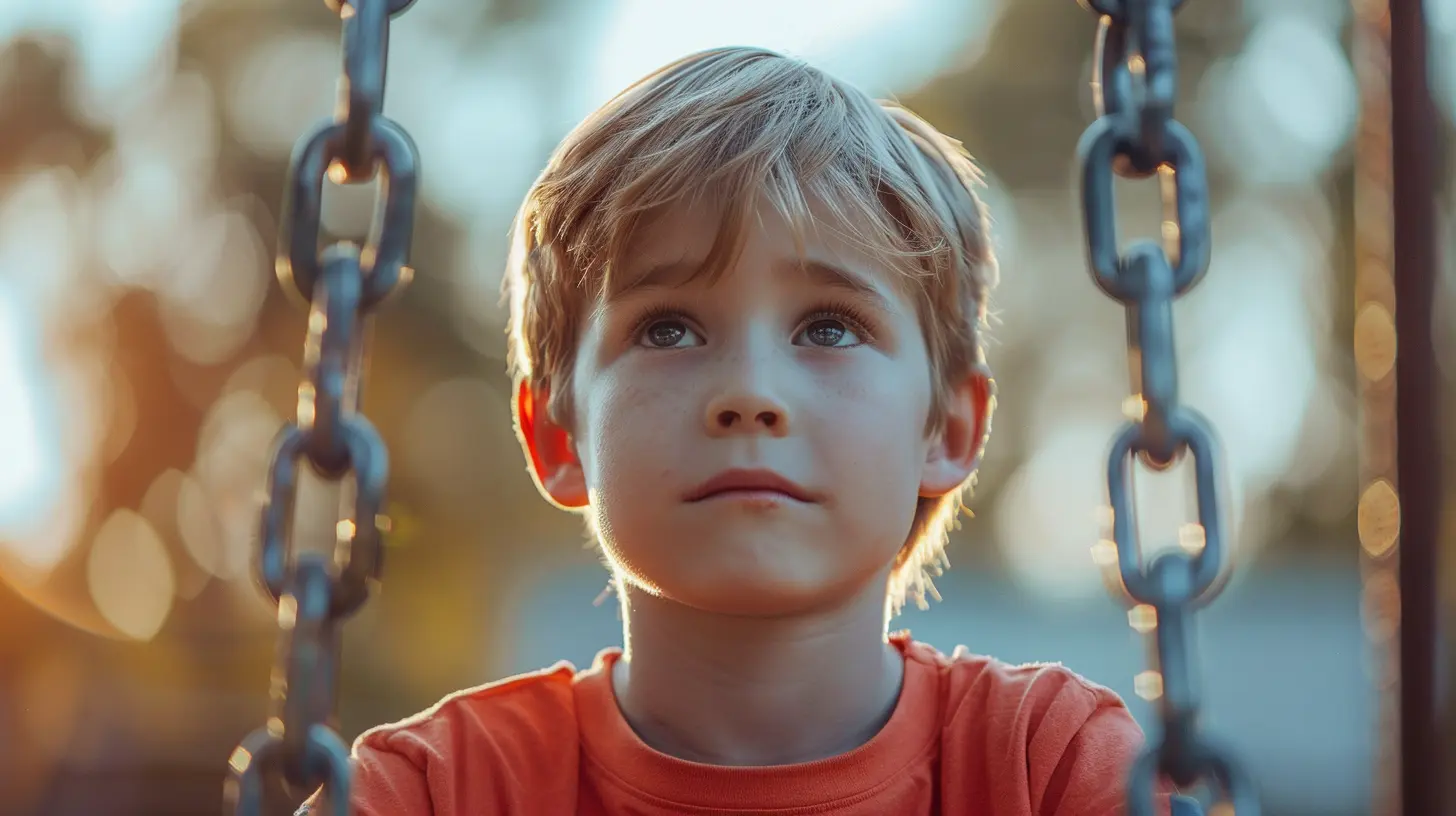
Validate Their Feelings (Even If It Feels Small to You)
So your child’s bestie didn’t sit by them at lunch. Big deal, right? It is to them.Children don’t have the emotional playbook that adults do. What might feel like typical kid behavior to you could feel like betrayal to your child.
Avoid minimizing their feelings with phrases like:
- “You’ll make other friends.”
- “It’s not that bad.”
- “That’s just how kids are.”
Instead, try:
- “That must have hurt.”
- “It’s okay to be upset about that.”
- “I’m here if you want to talk about it more.”
Validation isn’t agreeing—it’s acknowledging. You don’t need to solve the problem yet. You're just showing them that their feelings matter.
Help Them Understand the Different Types of Friends
Here’s a secret grown-ups know: Not all friendships are forever. And not all friends are meant to be best friends.Teach your child that there are:
- Close friends – trustworthy pals you can count on
- Casual friends – people you like but don’t hang out with all the time
- Acquaintances – classmates or teammates you’re friendly with
- Toxic friends – people who make you feel bad about yourself
Use this as an opportunity to explain healthy boundaries. Friends should make you feel good, not anxious or excluded.
Let them know it’s okay to outgrow a friendship. And just because someone was a great friend in second grade doesn’t mean they're a great friend now.
Teach Conflict Resolution Skills (Without Doing It For Them)
Let’s face it—kids argue. Especially close friends.What really matters is how they handle those arguments.
Instead of stepping in and playing referee, try coaching them through it. Teach them to:
- Use “I” statements: “I feel left out when you don’t include me.”
- Practice active listening: “Can I hear your side of the story?”
- Stay calm and respectful: No yelling, name-calling, or pouting
Role-play if you need to. You be the friend, and let them practice what they might say. It might feel silly, but this helps build real-life confidence.
Also, teach them that conflict doesn’t always mean the end of a friendship. Sometimes, it’s just a bump in the road.
Encourage Inclusion, But Don’t Force Friendships
As much as we’d love for our kids to be friends with everyone—it just doesn’t work that way. Sometimes, friendships fade. Sometimes kids just don’t click. And that’s okay.Encourage kindness, empathy, and inclusion—but don’t push your child to be best friends with someone who makes them feel uncomfortable or unwelcome.
Instead, focus on helping them find quality over quantity. Just one or two solid friendships can mean the world.
Be Mindful of Social Media and Group Texts (For Older Kids)
If your child is old enough to be texting or on social media, friendship struggles can get more complicated—fast.Exclusion, gossip, and passive-aggressive posts can be incredibly hurtful. And the worst part? It follows them home. There’s no “break” from digital drama.
Make sure you:
- Set healthy boundaries around screen time and apps
- Talk openly about online kindness and digital etiquette
- Encourage breaks from devices if stress builds up
- Monitor (without spying) their online interactions
Check in often. Just because drama isn’t happening face-to-face doesn’t mean it doesn’t feel real.
Help Build Their Confidence Outside of Friendships
One of the best ways to help your child weather friendship storms? Remind them that their worth isn’t tied to who likes them on any given week.Encourage activities that boost self-esteem—sports, art, music, volunteering, or anything they genuinely enjoy.
Help them find their “thing” that lights them up. When kids feel good about themselves, they’re less likely to crumble when friendships get rocky.
They'll also be more likely to attract friends who appreciate them for who they are.
When to Step In (And When to Stay Out)
Here’s the tricky part: knowing when to intervene and when to give your child space to figure it out.✅ Step in if:
- Bullying is involved (teasing, excluding, threatening, etc.)
- Your child is experiencing anxiety or depression
- Conflict is escalating beyond what they can handle
- There are safety concerns
🚫 Stay out if:
- It’s a typical disagreement or miscommunication
- Your child is learning how to set boundaries
- They’re figuring out their social preferences
When in doubt, talk to your child’s teacher or school counselor. They often have a front-row seat to what’s happening and can provide valuable insights.
What Not to Do as a Parent
Even with the best intentions, we sometimes make the friendship struggle worse. Here’s what to avoid:- Calling the other child’s parent to "talk it out" (unless absolutely necessary)
- Sharing your child’s struggles on social media
- Comparing your child’s friendships to their siblings' or your own
- Forcing playdates with kids they’re not comfortable with
- Insisting on "just forgive and forget" if real hurt is involved
Let your child lead the pace, and be their guide—not their fixer.
Final Thoughts: It’s a Journey, Not a Sprint
Friendships in childhood are messy, magical, confusing, and everything in between. One day your child’s crying over a friend who ignored them during recess, and the next day, they’re giggling together like nothing happened.Supporting your child through friendship struggles isn’t about fixing every bump in the road. It’s about walking beside them—offering your hand when things get rough, and cheering them on when they find their footing.
Let them know you’re always in their corner. With your love and guidance, they’ll not only survive friendship troubles—they’ll grow stronger, wiser, and more compassionate because of them.
all images in this post were generated using AI tools
Category:
Mental HealthAuthor:

Kelly Snow
Discussion
rate this article
1 comments
Carter McInerney
What insightful tips! How can we best encourage our kids to openly share their feelings about friendship challenges? Curious to learn more!
August 22, 2025 at 3:14 AM

Kelly Snow
Encourage open dialogue by creating a safe space for your child to express their feelings. Ask open-ended questions, actively listen, and validate their emotions. Role-playing scenarios can also help them practice discussing their challenges.

